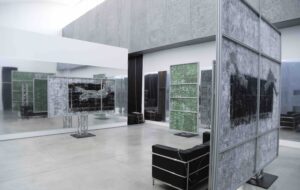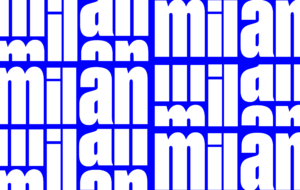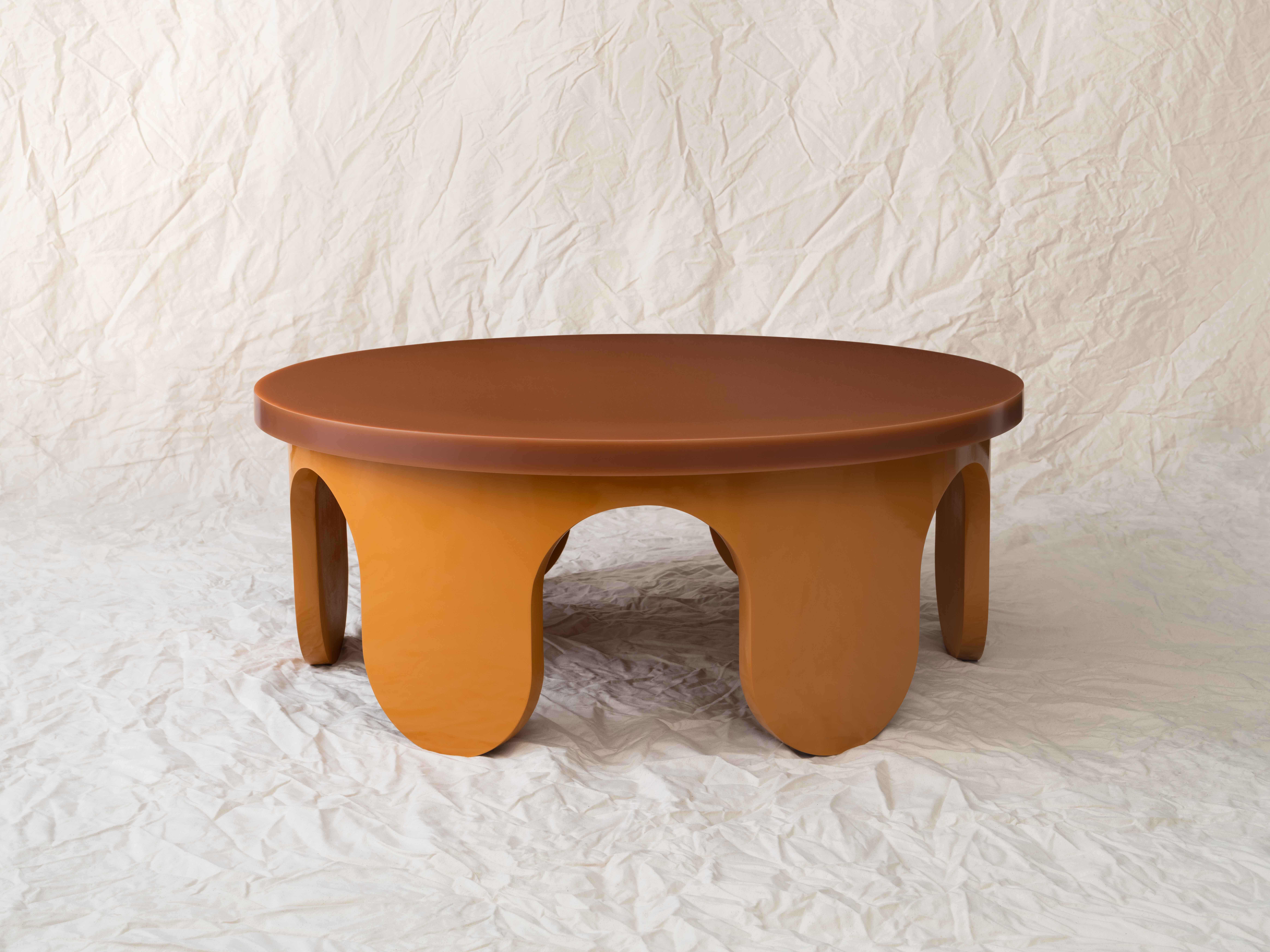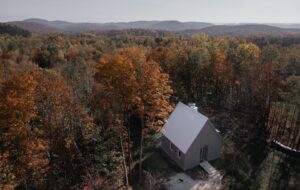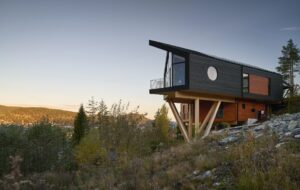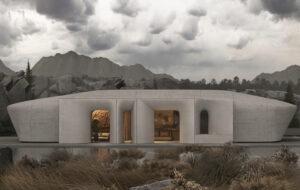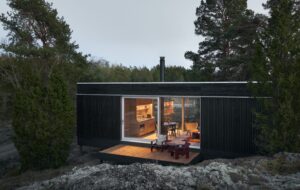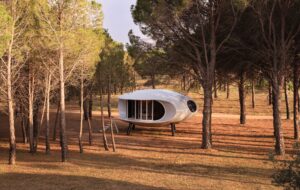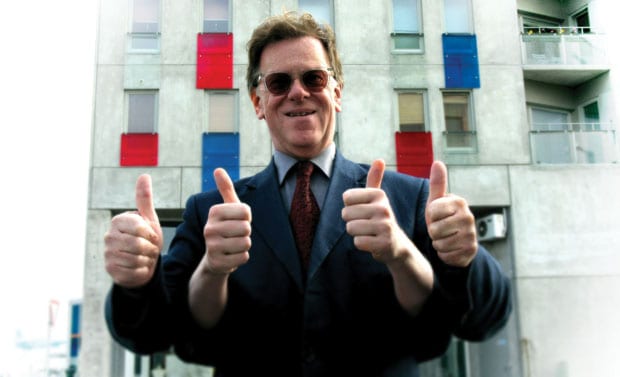
words William Wiles
Southern Europe, says Jonathan Meades in the opening scenes of Magnetic North, is “exuberant vines, guiltless hedonism, excitable olives, the immemorial ruins of immemorial civilisation, primary coloured emotions… it’s a promised land”. It sounds nice. But no! Why on earth are we so fixated on it, Meades asks, straying into the same baffled tones of a country vicar who genuinely can’t understand why young people want to go to the cinema instead of his Bible study evenings. Why aren’t we more familiar with the northern countries that share our latitude, our climate and some of our cultural DNA, he asks? After all, northern Europe is great: “It’s the unpromised land of darkness, of the Gothic in all its forms, of thrilling grimness, exhilarating harshness, inky canals, fog, glistening cobbles, of buildings that respond to flat lands with spires, fantastical gables, pointed arches and slagheaps that man made to compensate for the lack of mountains.”
Of course it’s no surprise that we attach more exoticism to the distant and different than we do to the near at hand and comparatively familiar. And often, when Meades knocks the south in order to burnish the north, it doesn’t come off. Our unfamiliarity with everything east of Lübeck isn’t to do with an irrational mania for buffalo mozzarella over pickled beaver cutlets, it’s to do with the Iron Curtain.
But fortunately, Meades spends most of his two hour-long programmes simply lauding northern Europe’s breathtaking heritage of art and architecture. He doesn’t just look at its Gothic churches and gabled merchant palaces, although those are clearly his favoured diversions. He devotes generous time to truly underrated and underexposed recent northern architecture: the expressionism of northern Germany, a genuine alternative path to the International Style, Estonia’s brief and glorious interwar modernist flowering, and the romanticism of Finland’s Lars Sonck.
Meades used to be a restaurant critic, which seeps through in the gustatory tone of his descriptions of architecture, particularly when being rude about it. For instance, a Soviet-era Baltic health spa is built in “the Leonid Brezhnev plays Las Vegas style… also known as the dogs-in-space manner”.
It’s all brilliantly brainy stuff, high-quality telly about art and architecture, and a monumental rebuke to those who claim that the BBC is dumbing down its content. Or is it? Meades is a wonderful writer and performer, and a favourite of this reviewer, so in this respect actually sitting down to analyse his appeal was a mistake. He’s a bit of a gabled merchant palace himself, a rich facade concealing a humbler structure. Are the pompous buttresses and finials of his phraseology just so much razzle-dazzle, misdirection from analysis that is at times rather thin? “Slagheaps are to the north what sybaritism is to the south,” he says. This sounds lovely and draws the required contrast between northern industriousness and southern feckless fun-seeking, but as a phrase it’s all colour and effect without real meaning. Similarly, it’s hard to know when Meades is being facetious. Did the pagan Lithuanians really have a god of possible rain before the 11th day after the first apple ripens? He says they did, but often he’s just poking fun in a note-perfect deadpan that is built for fun-poking.
In the end, you come away wondering what it adds up to. Meades doesn’t talk down, and leaves the viewer feeling very clever indeed, but his filmmaking is more about entertainment than education. There’s nothing wrong with that, and very high quality entertainment it is. But it’s a conclusion that’s at odds with his lauding of pragmatic, dour, hair-vested northernness over the southern pursuit of luxury and leisure.
Jonathan Meades’ Magnetic North was on BBC 2 last night at 7pm, available to watch on BBC iPlayer.


